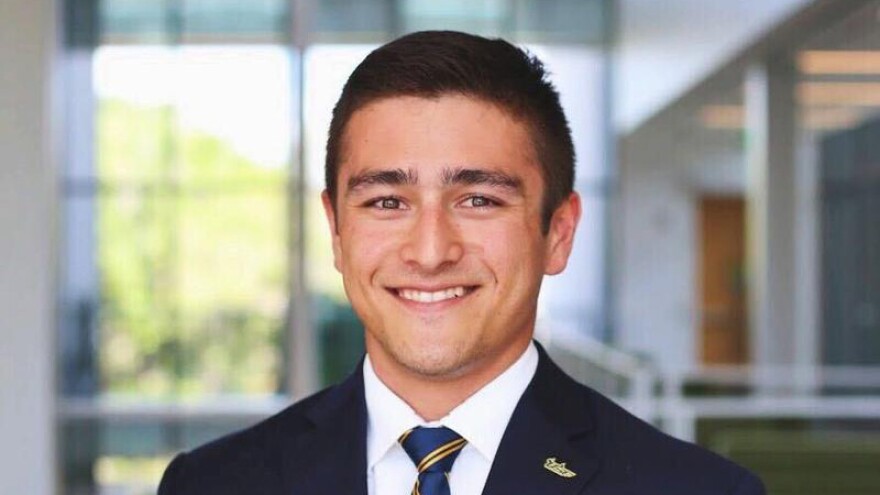While some groups are at a higher risk for COVID-19, no one is immune from the spread of the disease.
University of South Florida senior Geoffrey Watters is recovering from a mild case of COVID-19, just in time to graduate this month. But the 22-year-old still has concerns about others who may not be as lucky.
"I didn't expect to contract the coronavirus. I am a person who likes to work out at least five, six days (a) week. And I think my health is one of the top priorities in my life.
I first learned that I might have gotten (COVID-19 when) I was told by friend, he was in the hospital and he was actually being intubated. And then a couple days later, he told me he tested positive for coronavirus.
I went ahead and got tested when I started showing symptoms even though I have seasonal allergies, trying to figure out if I had symptoms in the first place was kind of hard. So I went ahead and got tested.
And when I got tested, everyone's in personal protective equipment - they're all dressed up and then you go to the next station, you pull up and you put it in park and then that's when they get the cotton swab and they go right up into your nose and it's not very comfortable. I will admit, it's not comfortable at all, it goes right into the back of your brain.
CORONAVIRUS: Complete Coverage From WUSF And Health News Florida
When I first took the test, they told me, there'd be about four to seven days. After this four to seven days pass, I called BayCare asked to see my results, they said, it's been extended to about nine to 12 days.
After those 12 days, I started calling on a daily basis (and) asked about my results. I called them every day until they finally said, 'Okay, it looks like it did come back in just a couple of hours ago.' And then that's when I finally got it.
That time between it was kind of frustrating, like I wanted to be frustrated, but at the same time I know that the people who are doing these tests are obviously overwhelmed.
It's kind of hard to think that, you know... number one, that you could get it. Other people that actually do get sick from the virus and could be suffering a lot more than me.
I didn't feel concern to myself really. I was very concerned about my family. I was very scared of giving it to someone and being responsible for them being in the hospital or incapacitated, or even worse, death.
I noticed people are going to be more reluctant to see me or hang out with me, and I don't take it personally, because those people have legitimate reasons to actually avoid any sort of contact with the virus.
But hopefully it doesn't get too out of hand, where people completely shun others and like it almost becomes like a legacy of the modern day.
I genuinely have actually more concerns of people who are either...Asian or Asian Americans. Personally, I don't look Asian. I'm half-white too, but I fear for others who will get labeled or might have some encounters where it's gonna be ugly. I hope that they don't get too bad. I don't think they will.
But I just have to look after my family too, because my mother who's full Japanese, I worry that someone might yell at her at the store because she might have virus or something -- scenarios around my head, I try not to think about them, because I feel like the more you think about it, the more likely it's going to happen.
I think people always have to take this very seriously, this virus can cause permanent damage. And my friend who isn't that much older than me has had permanent damage because he had bilateral pneumonia because of the virus and it will affect him.
But I think we have to also make sure that the people around us aren't going to be in danger because it's not worth losing a loved one or a friend just so you can go out and have fun. It's just not worth it."
This story is produced in partnership with America Amplified, an initiative using community engagement to inform local journalism. It is supported by the Corporation for Public Broadcasting.





